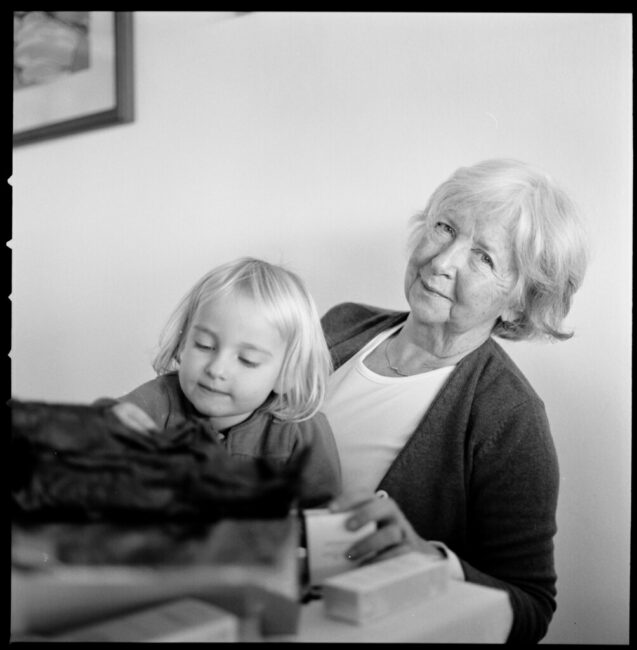Let’s face it: grannies are wonderful. Sitting us on their knees, teaching us how to cook, crying when we get into university… and increasing our survival rates.
Research on 18th – 19th century Finnish and Canadian populations found that a long post-menopausal lifespan in women was associated with increased survival rates in their grandchildren, compared to children whose grandmothers died shortly after menopause1. The study corroborates a phenomenon known as the grandmother effect, wherein a grandmother’s post-reproductive longevity improves the survival of her grandchildren. The effect is restricted to maternal grandmothers.
Most animals have evolved to reproduce until they expire2 3 4, producing as many offspring as possible to pass on their parents’ genes. Offspring survival is just as important as reproduction in continuing a bloodline, so having granny stick around to help rear the kids makes sense. The grandmother effect may explain why human females must endure menopause, while most other animals are capable of reproducing until death – a grandmother is much more helpful towards her daughter’s children if she isn’t distracted by her own children5 6.
The grandmother effect was previously considered unique to humans. Our closest relatives, chimpanzees, don’t get much chance to be devoted grandmothers; granny chimp’s lifespan wanes with her fertility levels7. Killer whales, however, live for several decades after menopause, similar to human women. Recent research suggests that not having their own offspring also improves the ability of killer whale grandmothers to help rear their daughters’ offspring8.
While the link between post-reproductive longevity and grandoffspring survival is compelling, the relationship could possibly be confounded with other factors: for example, a grandmother with no genetic diseases will live a long life, and pass her healthy genes onto her children and grandchildren. However, it’s worth noting that the grandmother effect does not seem to make much difference to the survival of the son’s children. Further research will show whether other factors affect the grandmother effect.
Human grannies and killer whale grannies have one thing in common: they have built up a wealth of knowledge through the years. Human grandmothers teach their grandchildren to find and prepare food in the best and most efficient ways, even during times of hardship. Similarly, killer whale grandmothers know where the best feeding grounds are. With climate change and overfishing affecting food abundance, their wisdom is more important now than ever before9.
We are still discovering the value of grandmothers in complex animal societies, and how the help and wisdom of grandmothers is vital to the survival of new generations. Grandmothers are often seen as frail figures, requiring us to help them carry shopping. While we may look after them when they need us, we mustn’t forget how much they cared for us, and how they helped our parents cope with the struggles of beginning parenthood.
Edited by Frankie Macpherson and Alex Brumwell
References
- https://www.nature.com/articles/nature02367
- https://royalsocietypublishing.org/doi/pdf/10.1098/rstb.1991.0028
- https://www.sciencedirect.com/science/article/pii/S0169534715001044
- https://www.journals.uchicago.edu/doi/abs/10.1086/283798
- https://blogs.scientificamerican.com/observations/the-grandmother-factor-why-do-only-2010-06-30/
- https://qz.com/1372767/twice-as-many-animals-go-through-menopause-as-scientists-previously-thought/amp/
- http://www.eva.mpg.de/documents/Elsevier/Hill_Mortality_JHumEvo_2001_1556100.pdf
- https://www.pnas.org/content/116/52/26669
- https://www.pnas.org/content/116/52/26669

